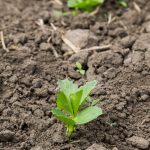Alpaca manure, with its abundance of nutrients and eco-friendly qualities, is a great choice for vegetable gardens. This natural fertilizer can significantly improve the health and productivity of your plants while promoting sustainability and soil fertility. Understanding the unique characteristics of alpaca manure and how it benefits vegetable gardens is essential for any gardener looking to maximize their harvest.
Unlike other animal manures, such as chicken or cow, alpaca manure has several distinct qualities that make it an excellent choice for vegetable gardens. Firstly, alpacas have a vegetarian diet, resulting in a manure that is low odor and easy to handle. This makes it more pleasant and convenient to use compared to other animal fertilizers. Additionally, alpaca manure breaks down quickly when applied to the soil, making its nutrients readily available to plants.
When it comes to nutrient composition, alpaca manure boasts an impressive array of rich organic matter that benefits vegetable gardens. It contains high levels of nitrogen, phosphorus, potassium, and micronutrients essential for plant growth. These nutrients contribute to healthier foliage, stronger root development, increased flowering and fruit production, and overall plant vitality. The balanced nature of alpaca manure ensures that your vegetables receive all the nourishment they need for optimal growth.
What Makes Alpaca Manure Different from Other Animal Manures?
Alpaca manure stands out from other animal manures for several reasons. Firstly, alpaca manure has a low odor compared to other animal manures, making it more pleasant to work with in a vegetable garden setting.
Secondly, unlike other animal manures that may need to be composted or aged before use, alpaca manure can be used straight away without the fear of burning plants. This is because alpaca manure has a lower nitrogen content than other types of manure, which reduces the risk of nitrogen overload in the soil.
Another factor that sets alpaca manure apart is its consistency. Alpaca manure has a drier texture compared to other animal manures, making it easier to handle and apply evenly throughout the garden. Its dryness also means that it does not clump together as much, resulting in better airflow and water penetration in the soil.
To summarize:
- Low odor: Alpaca manure has a milder scent compared to other animal manures.
- No composting required: Alpaca manure can be used immediately without the risk of burning plants.
- Dry texture: The dryness of alpaca manure makes it easier to work with and promotes better soil structure.
When considering options for fertilizing your vegetable garden, these unique qualities make alpaca manure an excellent choice. Whether you’re an experienced gardener or just starting out, using alpaca manure can provide numerous benefits for your vegetable plants while minimizing potential drawbacks often associated with other types of animal manures.
Nutrient Composition
Alpaca manure is not only a great choice for vegetable gardens, but it also offers a rich nutritional benefit that can significantly enhance the growth and health of your plants. Unlike other animal manures, alpaca manure has a unique composition that makes it an excellent organic fertilizer option.
One of the key factors that sets alpaca manure apart from other animal manures is its low nitrogen content. While other animal manures have high levels of nitrogen, which can lead to excessive nitrogen runoff and contribute to water pollution, alpaca manure has a lower nitrogen content, making it less likely to cause these environmental issues.
However, despite its lower nitrogen content, alpaca manure still provides essential nutrients for plant growth. It is rich in phosphorus and potassium, two vital nutrients that are necessary for plant development and overall health. Alpaca manure also contains micronutrients such as magnesium, calcium, and iron, which are crucial for plant growth and play important roles in various metabolic processes.
| Nutrient | Percentage |
|---|---|
| Nitrogen (N) | 1.7% |
| Phosphorus (P) | 0.5% |
| Potassium (K) | 1.4% |
| Magnesium (Mg) | 0.3% |
| Calcium (Ca) | 0.8% |
| Iron (Fe) | 0.05% |
These nutrient levels make alpaca manure an ideal fertilizer for vegetable gardens, as they provide a balanced nutrition that promotes healthy plant growth without the risk of excessive nitrogen leaching.
In addition to its nutrient composition, alpaca manure also contains organic matter and beneficial microorganisms that improve soil structure and fertility. The organic matter in the manure helps retain moisture in the soil, prevent erosion, and promote the growth of beneficial soil microorganisms. These microorganisms break down organic matter and release more nutrients for plants to absorb, further enhancing the overall nutrient availability in the soil.
Overall, understanding the rich nutritional benefit of alpaca manure is essential for vegetable gardeners looking for sustainable and eco-friendly fertilizer options. With its balanced nutrient composition and ability to improve soil health, alpaca manure can significantly contribute to the success and productivity of your vegetable garden. By using this organic fertilizer, you can promote healthy plant growth while minimizing environmental impacts.
Organic and Eco-Friendly
Alpaca manure is not only a nutrient-rich fertilizer, but it is also an organic and eco-friendly option for vegetable gardens. Unlike chemical fertilizers that can harm the environment and potentially contaminate soil and water sources, alpaca manure provides a sustainable solution for gardeners looking to minimize their ecological footprint.
One of the main reasons why alpaca manure is considered organic and eco-friendly is because it comes from animals that are raised using natural and sustainable practices. Alpacas are typically raised on small farms where they graze on grasses, hay, and other natural vegetation. This means that their manure does not contain harmful chemicals or synthetic additives that can be found in commercial animal feeds or industrial farming practices.
Using alpaca manure as a sustainable fertilizer option also benefits the environment by reducing waste. Alpacas have efficient digestive systems that break down the plant matter they consume, resulting in nutrient-rich manure with minimal odor.
Additionally, unlike other large farm animals, such as cows or horses, alpacas produce relatively small amounts of waste compared to their body weight. This makes it easier for farmers to collect the manure and utilize it as fertilizer without overwhelming their gardens or contributing to excessive waste management issues.
To make the most of alpaca manure’s organic and eco-friendly properties, there are best practices gardeners should follow when applying it to vegetable gardens. Firstly, it is important to properly compost the manure before application. Composting helps break down any potential pathogens while also stabilizing and enhancing its nutrients. The composted alpaca manure can then be spread over garden beds or mixed into potting soil before planting vegetables.
Alpaca Manure and Soil Health
One of the key benefits of using alpaca manure in vegetable gardens is its ability to enhance soil structure and fertility. Alpaca manure is rich in essential nutrients that are beneficial for plant growth, such as nitrogen, phosphorus, and potassium. These nutrients are essential for the development of strong roots, healthy foliage, and robust fruit production.
Alpaca manure also improves soil structure by increasing its water-holding capacity and promoting better drainage. This is especially important for vegetable gardens as it helps prevent waterlogged soil, which can lead to root rot and other diseases. The improved soil structure allows for better oxygen exchange in the root zone, promoting healthier root development.
In addition to nutrient content and soil structure improvement, alpaca manure also contributes to enhanced soil fertility. When alpaca manure decomposes, it releases organic matter into the soil. This organic matter acts as a natural fertilizer, improving nutrient availability to plants over time. It also increases the microbial activity in the soil, creating a healthy ecosystem where beneficial microorganisms break down organic matter further and release nutrients that are then absorbed by plants.
Research has shown that using alpaca manure in vegetable gardens can improve crop yields and overall plant health. Studies have found that crops grown with alpaca manure as fertilizer show increased resistance to pests and diseases due to their improved overall health. Additionally, vegetables grown with alpaca manure have been found to have higher levels of essential minerals and vitamins compared to those grown with synthetic fertilizers.
To fully harness the benefits of alpaca manure for soil health in vegetable gardens, proper application is key. It is recommended to compost or age the manure before applying it to allow for complete decomposition and reduce any potential risks of pathogens or weed seeds present in raw manure. Applying a layer of composted alpaca manure to the soil surface and lightly incorporating it into the top few inches of soil before planting is an effective method of application.
| Nutrient | Content (%) |
|---|---|
| Nitrogen (N) | 1.8-2.4 |
| Phosphorus (P) | 1.0-1.7 |
| Potassium (K) | 0.8-1.5 |
Alpaca Manure Application Tips
Using alpaca manure as a fertilizer in vegetable gardens can provide numerous benefits to the soil and plants. However, it’s important to properly apply and handle the manure to ensure optimal results and avoid any potential issues.
Composting Alpaca Manure
One of the best ways to use alpaca manure in vegetable gardens is by composting it before application. Composting not only helps in breaking down the manure but also eliminates any pathogens or weed seeds that may be present. To compost alpaca manure, start by collecting it in a pile or designated composting bin. It is crucial to mix the manure with other organic materials such as straw, leaves, or wood shavings to create a well-balanced composting mixture.
Applying Alpaca Manure
When applying alpaca manure, timing is essential. It is recommended to apply the manure during the fall or early spring before planting your vegetables. This allows enough time for the nutrients to break down and integrate into the soil.
Before spreading alpaca manure on your vegetable garden, perform a soil test to determine its nutrient deficiencies and pH levels. This will help you understand how much alpaca manure needs to be added for optimal growth.
Start by spreading a thin layer of composted alpaca manure on top of the soil surface and gently work it into the topsoil using a rake or gardening fork. Avoid placing large clumps of manure directly onto your plants, as this could potentially burn them due to excess nitrogen.
Managing Moisture Levels
Alpaca manure can retain moisture effectively when used as mulch around plants. However, excessive moisture can lead to root rot or other problems if not managed properly. Monitor the moisture levels regularly and make sure that the soil does not become waterlogged.
To avoid overwatering, create appropriate drainage systems in your garden beds and use well-draining soil. Additionally, consider using a layer of organic mulch on top of the manure to help regulate moisture levels.
By following these best practices for alpaca manure application, you can maximize its benefits and promote healthy growth in your vegetable garden. Be sure to adjust the amount of manure used based on your specific soil conditions and plant requirements.
Alpaca Manure vs. Chemical Fertilizers
Benefits of Alpaca Manure
Alpaca manure offers numerous benefits compared to chemical fertilizers, making it an excellent choice for vegetable gardens. One significant advantage is its organic nature. Chemical fertilizers often contain synthetic ingredients that can harm the environment and disrupt the natural balance of the soil ecosystem. In contrast, alpaca manure is completely natural and free of harmful chemicals, making it a sustainable and eco-friendly option.
Another benefit of alpaca manure is its rich nutrient composition. Unlike some other animal manures, alpaca manure is low in nitrogen, which means it does not release excessive amounts of this nutrient into the soil. This is crucial for vegetable gardens as too much nitrogen can lead to excessive foliage growth but poor fruit or vegetable production. Alpaca manure also contains essential nutrients like phosphorus and potassium, which are vital for healthy plant growth and development.
Drawbacks of Chemical Fertilizers
Chemical fertilizers may provide quick results due to their high concentration of nutrients, but they come with several drawbacks. One major disadvantage is their negative impact on soil health. Continuous use of chemical fertilizers can lead to nutrient imbalances and acidify the soil over time. This can result in decreased microbial activity, reduced water-holding capacity, and overall degradation of soil structure, making it less conducive for plant growth.
Moreover, chemical fertilizers are prone to runoff issues. Excess fertilizer that is not absorbed by plants can easily wash away during rainfall or irrigation, contaminating nearby water bodies and causing environmental damage. Additionally, the synthetic compounds found in chemical fertilizers can have long-term negative effects on beneficial organisms such as earthworms and beneficial bacteria in the soil.
The Advantages of Using Alpaca Manure
When comparing alpaca manure with chemical fertilizers, it becomes evident that alpaca manure offers several advantages. Firstly, alpaca manure promotes long-term soil health as it provides a balanced and slow-release form of nutrients. It enhances soil structure, aids in moisture retention, and encourages the proliferation of beneficial microorganisms. These factors contribute to improved soil fertility and sustainable plant growth.
Secondly, using alpaca manure reduces the risk of chemical pollution. Since it is free of synthetic chemicals, there is no concern about harmful effects on the environment or human health. By choosing alpaca manure over chemical fertilizers, vegetable gardeners can contribute to a healthier ecosystem and reduce their ecological footprint.
Success Stories from Alpaca Manure Users
One of the best ways to gauge the effectiveness of any product is to hear from those who have actually used it. When it comes to alpaca manure as a fertilizer for vegetable gardens, there are countless success stories and testimonials from satisfied gardeners. These testimonials serve as evidence of the value and benefits that alpaca manure can bring to your own vegetable garden.
One common theme among these success stories is the visible improvement in plant growth and productivity after using alpaca manure. Many gardeners have reported larger, healthier vegetables with increased yields. This is likely due to the high nutrient content of alpaca manure which provides plants with essential elements like nitrogen, phosphorus, and potassium.
Furthermore, vegetable gardeners have praised the organic nature of alpaca manure and its positive impact on soil health. Unlike chemical fertilizers that can harm beneficial soil microorganisms and disrupt natural ecological balances, alpaca manure enriches the soil without causing any harm. Testimonials often highlight improved soil structure, increased water retention capacity, and enhanced overall fertility as some of the notable benefits experienced by users.
In addition to the tangible benefits, many gardeners appreciate the sustainability aspect of using alpaca manure. By choosing this natural fertilizer option, they feel good about minimizing their reliance on synthetic chemicals that may be harmful to both human health and the environment. These success stories not only speak to the quality of alpaca manure as a fertilizer but also highlight its compatibility with eco-friendly gardening practices.
Overall, the testimonials from vegetable gardeners who have used alpaca manure consistently affirm its effectiveness and numerous advantages over other types of fertilizers. From improved plant growth to enhanced soil health and sustainability benefits, it is clear why so many individuals choose alpaca manure for their vegetable gardens. So why not join the ranks of satisfied gardeners and experience the transformative effects of alpaca manure in your own garden?
Frequently Asked Questions
As with any unfamiliar gardening practice, it is common for vegetable gardeners to have questions and concerns about using alpaca manure as a fertilizer. In this section, we will address some of the most frequently asked questions and clear up any misconceptions about using alpaca manure in vegetable gardens.
- Q: Will alpaca manure smell bad in my garden?
- A: One of the greatest advantages of using alpaca manure in your vegetable garden is that it has a mild, earthy odor. Unlike other types of manures, such as cow or chicken, which can have a strong ammonia-like smell, alpaca manure has a much milder scent. This makes it more pleasant to work around and less likely to be offensive to you or your neighbors.
- Q: Is there a risk of parasites or pathogens in alpaca manure?
- A: Alpacas have a unique digestive system that efficiently breaks down their food, resulting in very few parasites or pathogens present in their manure. However, it is still important to handle all types of animal manures correctly. To minimize risks, we recommend composting alpaca manure before applying it to your vegetable garden. Composting the manure at high temperatures will ensure that any potential pathogens are destroyed.
- Q: Can I use fresh alpaca manure directly on my plants?
- A: Fresh alpaca manure is high in nitrogen and can burn plant roots if applied directly. It is best to compost the manure for several months before using it as a fertilizer. Composting also helps reduce odor and weed seeds while breaking down the nutrients in the manure into forms that are more readily available to plants.
By addressing these common concerns and misconceptions related to the use of alpaca manure in vegetable gardens, we hope to provide clarity and confidence for gardeners considering this sustainable and nutrient-rich fertilizer option. Remember to always handle manure safely and follow best practices for composting and application to ensure you reap the maximum benefits for your vegetables.
Conclusion
In conclusion, it is clear that alpaca manure is an excellent choice for vegetable gardens due to its numerous value and benefits. Its unique qualities set it apart from other animal manures, making it a preferred option for gardeners. The nutrient composition of alpaca manure is rich and provides essential elements that promote healthy plant growth and high yields. Additionally, the use of alpaca manure as a fertilizer is organic and eco-friendly, aligning with sustainable gardening practices.
One of the significant advantages of using alpaca manure in vegetable gardens is its positive impact on soil health. It enhances soil structure and fertility, creating an optimal environment for plants to thrive. Alpaca manure’s organic matter content improves soil moisture retention and drainage, preventing erosion and waterlogged conditions. Moreover, it enriches the soil with beneficial microorganisms, promoting a balanced ecosystem underground.
When applying alpaca manure in vegetable gardens, it is crucial to follow best practices to maximize its benefits. The key is to ensure proper composting or aging of the manure to avoid any potential negative effects on plants such as burning or nutrient imbalance. As with any fertilizer application, moderation is essential to prevent over-fertilization and minimize the risk of runoff contamination.
In comparison to chemical fertilizers, alpaca manure offers several advantages. It provides long-term benefits that improve soil fertility over time rather than providing quick but temporary results like synthetic fertilizers. Furthermore, alpaca manure does not contain harmful chemicals or synthetic additives that can have detrimental effects on both human health and the environment.
The success stories from many vegetable gardeners who have used alpaca manure further validate its value and effectiveness as a fertilizer option. These testimonials demonstrate how well-suited it is for various types of vegetables, resulting in healthy plants and abundant harvests.
Frequently Asked Questions
How long to compost alpaca manure?
The time it takes to compost alpaca manure can vary depending on various factors. Generally, alpaca manure decomposes relatively quickly compared to other types of animal manure. It can take anywhere between three to six months for the composting process to be completed.
However, this timeframe can be influenced by variables such as temperature, moisture levels, the carbon-to-nitrogen ratio in the compost pile, and regular turning or aerating of the compost pile. It is important to monitor and adjust these factors accordingly to ensure optimal decomposition.
Is alpaca poop high in nitrogen?
Yes, alpaca poop is considered to be high in nitrogen content. Nitrogen is an essential nutrient required by plants for healthy growth and development. Alpaca manure contains a higher concentration of nitrogen compared to some other types of animal manures, such as cow or horse manure.
This makes it an excellent source of nitrogen for enriching soil fertility and promoting plant growth when used as a natural fertilizer or compost additive. However, it is still necessary to properly compost or age the alpaca manure before applying it directly to plants or garden beds to prevent the risk of burning or damaging plant roots due to its high nitrogen content.
Is alpaca manure better than cow manure?
Whether alpaca manure is better than cow manure depends on various factors and individual gardening needs. Both types of manure have their own advantages and considerations. Alpaca manure tends to have a lower odor compared to cow manure, making it more pleasant to handle and use in gardening practices like top dressing or side dressing plants. Additionally, alpaca fiber remnants present in their dung can add organic matter when incorporated into the soil after proper decomposition, benefiting soil structure and water-holding capacity.
On the other hand, cow manure may contain more diverse nutrients due to cows’ diet variety and generally has higher water retention capabilities due to its higher moisture content. Ultimately, choosing between alpaca and cow manure may depend on factors such as availability, personal preference, the specific nutrient needs of the plants being cultivated, and the existing soil conditions. It is always recommended to conduct a soil test and understand specific plant requirements before deciding which type of manure to use.

If you’re looking to get into vegetable gardening, or are just looking for some tips on how to make your current garden better, then you’ve come to the right place! My name is Ethel and I have been gardening for years. In this blog, I’m going to share with you some of my best tips on how to create a successful vegetable garden.





